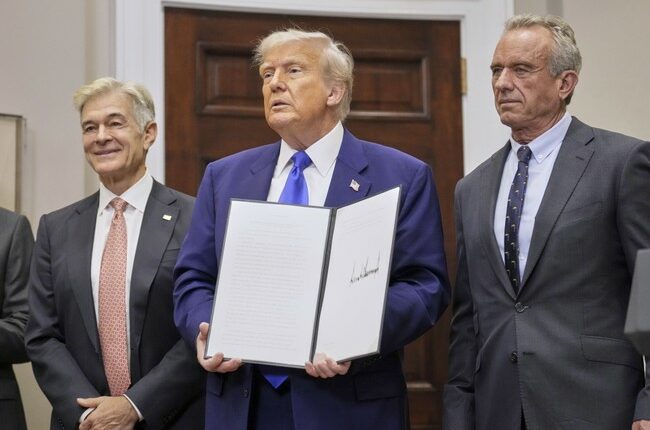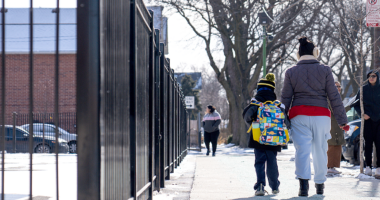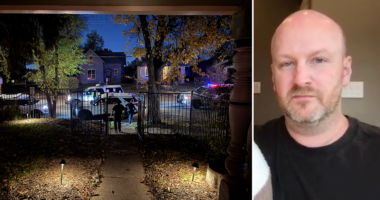Share this @internewscast.com

The Democratic Party has chosen to highlight the One Big Beautiful Bill as their main campaign theme for 2026. They believe that focusing on Medicaid cuts could sway voters away from the Republicans and back to them during the midterm elections.
A primary concern for them is how reductions in Medicaid could affect rural hospitals. However, despite advocating for healthcare, they support eliminating the 340B drug program that rural hospitals depend on. Moreover, they aren’t taking action against big pharmaceutical companies attempting to undermine it.
Five major pharmaceutical giants—Bristol Myers Squibb, Eli Lilly, Johnson & Johnson, Novartis, and Sanofi—are working to overhaul the way rural hospitals receive discounted medications. Instead of receiving immediate discounts through the federal 340B program, these companies propose shifting to a “rebate model,” where hospitals initially pay full price and later possibly receive reimbursement from pharmaceutical firms.
Sound like a scam? That’s because it is.
The Numbers Don’t Lie
A recent national survey from 340B Health reveals the severe impact of this proposed change. The average critical access hospital—small rural facilities with 25 beds or fewer serving communities throughout Louisiana and rural America—would need to support an additional $1.7 million each year to cover costs to pharmaceutical companies.
Consider this: rural hospitals, already struggling financially, would suddenly have to find nearly $2 million in upfront funds and then wait for pharmaceutical companies to process their rebate requests “based on their own criteria and timelines.”
For larger hospitals, the numbers are even more staggering. Disproportionate share hospitals would face an average annual burden of $72.2 million.
The Administrative Nightmare
The situation is even more challenging because these rebate models not only cause cash flow issues but also impose significant new administrative costs on hospitals least equipped to handle them. Hospitals would be required to hire extra personnel to manage paperwork, comply with drug company mandates, and pursue rebates when companies inevitably reject valid claims.
The survey findings are brutal:
-
77% of hospitals said these rebate models would jeopardize their ability to keep their doors open
-
92% would be forced to reduce the free and discounted drugs they provide at their pharmacies
-
86% expect layoffs and hiring freezes
Near where I live in rural Louisiana, where hospitals are often among the top three employers in their communities, this isn’t just a healthcare crisis. It’s an economic disaster waiting to happen.
The Political Blind Spot
Democrats have completely abandoned rural America on this issue. They’re so busy scoring political points against the Big Beautiful Bill that they’re ignoring their pharmaceutical industry allies’ assault on rural healthcare.
Meanwhile, the media, which does Democrats’ bidding 24/7, only covers rural health issues when they can use them to attack Republicans. A genuine threat from Big Pharma to rural hospitals? Crickets.
This analysis is straightforward: The Health Resources and Services Administration has blocked these schemes, correctly determining that they violate federal law. But pharmaceutical companies are fighting back in court, and they have the resources to keep pushing until they get their way.
When a rural hospital closes, it doesn’t just mean longer drives to the emergency room, though that’s certainly life-threatening enough. It means one of the community’s largest employers disappears. It means young people leave for places with better healthcare. It means property values plummet and businesses relocate.
Using economic models from the American Hospital Association, each rural hospital employee contributes approximately $200,000 annually to their local economy. A 300-employee hospital contributes $60 million per year back to its rural community.
Now, imagine trying to make those numbers work when pharmaceutical companies are essentially demanding millions in interest-free loans from hospitals that are already struggling to keep the lights on.
Bottom Line
The evidence is clear: I’m not making sweeping claims about the Big Beautiful Bill’s Medicaid provisions and their potential challenges for rural healthcare. The $50 billion Rural Health Transformation Fund is designed to address some of those concerns, though we’ll see how effective it actually is.
But while Washington argues about Medicaid work requirements that might affect rural hospitals down the road, Big Pharma is actively working to destroy rural healthcare right now. And they’re counting on nobody paying attention.
The 340B program isn’t perfect—no federal program is. But it’s a lifeline for rural hospitals that serve the patients nobody else wants to treat. If we let pharmaceutical companies turn it into just another profit center, we’ll lose more than hospitals. We’ll lose entire communities.
It’s time to call this what it is: corporate greed masquerading as healthcare reform. And it’s time to stop it before it’s too late.
















